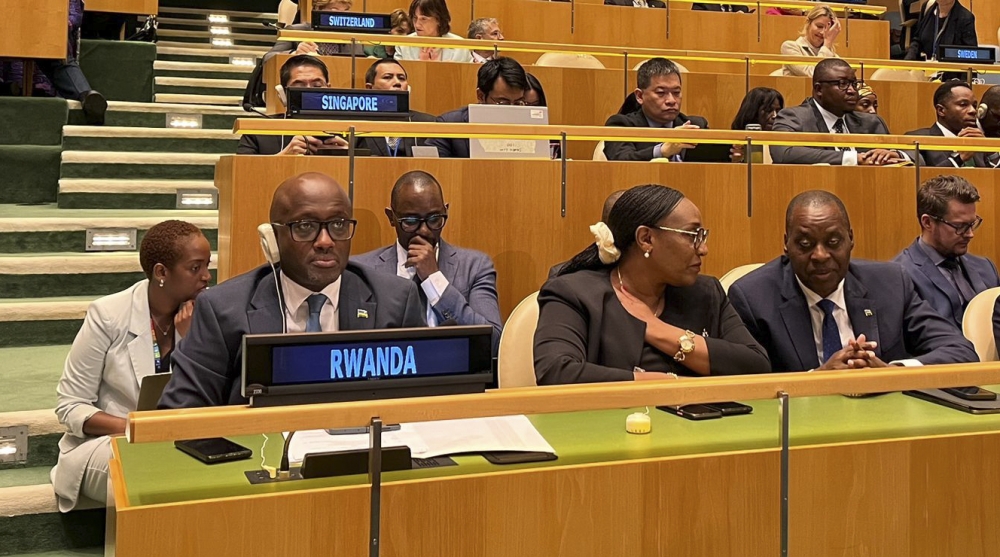

Rwanda’s Minister of Foreign Affairs and International Cooperation, Olivier Nduhungirehe, called for unified global action to tackle pressing challenges at the United Nations Summit of the Future, which began on Sunday, September 22, ahead of the 79th UN General Assembly.
ALSO READ: VIDEO: Kagame talks immigration crisis, "profound injustice" in UN General Assembly address
The summit underscored the need for enhanced international cooperation to address pressing challenges such as climate change, poverty and inequality, while also tackling the impacts of ongoing conflicts and global health crises.
Nduhungirehe said the summit offered an opportunity to secure a more equitable and sustainable world.
ALSO READ: The leaders, CEOs Kagame met during UN General Assembly week
"This summit marks the beginning of transformative action essential for the well-being of our global community,” Nduhungirehe said, stressing that Rwanda fully supports the Pact for the Future, which was signed at the high-level summit.
He noted that the Pact serves as a roadmap for addressing key global challenges such as climate change, conflict, and health crises.
The foreign minister highlighted Rwanda’s dedication to the principles laid out in the Pact, emphasising the need to ensure future generations inherit a world that is sustainable and just.
"The decisions we make today will shape the world of tomorrow," Nduhungirehe said, calling for a shift from traditional reactive approaches to more proactive and innovative solutions.
"For Rwanda, the Pact for the Future is a testament of our collective vision and commitment to addressing the most challenges of our time," he said.
"Our ultimate goal is to ensure that future generations inherit a world that is not only sustainable but also equitable and just for this generation and those come."
He emphasised that addressing the root causes of global problems, rather than simply responding to their symptoms, is key to long-term global stability.
"We must shift from the old way of business as usual and embrace strategies that go beyond short-term fixes,” he said.
He stressed the importance of building structures capable of adapting to evolving challenges, particularly in areas such as climate change and pandemic preparedness.
"To ensure sustainable development, we must build resilient systems that can withstand the challenges of tomorrow,” he said.
The minister pointed to the necessity of strengthening global health systems, resolving conflicts through addressing their root causes, and harnessing technology for equitable development.
He reaffirmed Rwanda’s commitment to playing an active role in global efforts. He called on member states to work together in turning the aspirations outlined in the Pact for the Future into concrete actions.
"Together, let us turn our shared aspirations into tangible results that benefit all of humanity,” he said.


